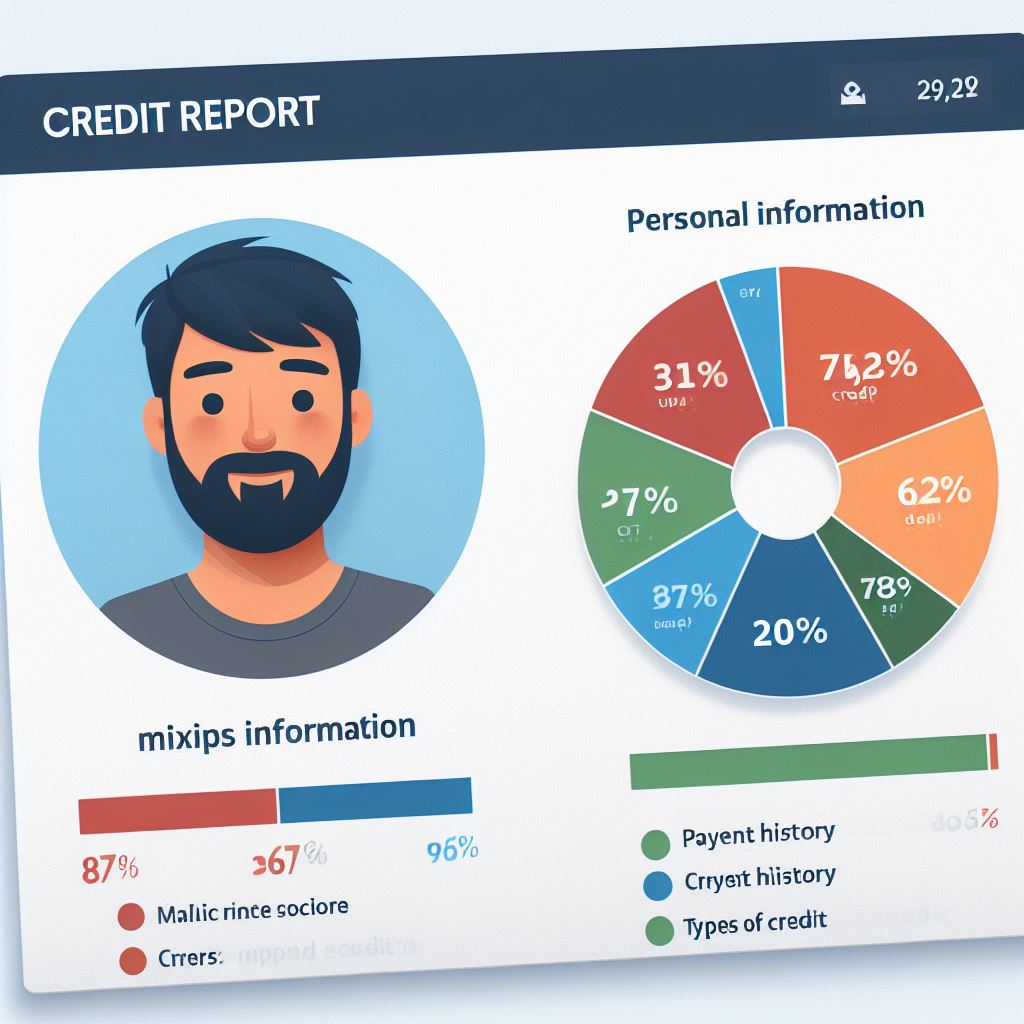Mixed Credit Files: What They Are, How They Harm You, and How Jaffer Law Can Help Fix Them

Your credit report serves as a critical tool in determining your financial credibility. It impacts your ability to secure a mortgage, finance a car, get approved for a credit card, or even obtain a job. But what happens when your credit file is contaminated with someone else’s data? This is known as a mixed credit file—and it can lead to devastating financial consequences.
At Jaffer Law, we help clients across the country identify and resolve mixed credit file issues. We hold credit bureaus accountable when they fail to maintain accurate, individual-specific data, and we fight to restore your financial reputation.
What Is a Mixed Credit File?
A mixed credit file occurs when the credit reporting agencies—Equifax, Experian, or TransUnion—combine information from two or more individuals into a single report. This typically happens when individuals share similar names, Social Security numbers, dates of birth, or addresses. As a result, your credit report may show accounts, debts, or derogatory information that actually belongs to someone else.
These errors are not just minor inconveniences—they can ruin your credit score, prevent you from accessing loans, increase your interest rates, or even cost you a job. Unfortunately, mixed credit file problems are more common than you might think, and resolving them often requires legal intervention.
Common Causes of Mixed Credit Files
1. Similar Names
If you share a first and last name—or even a middle initial—with another person, especially a family member like a parent or sibling, there is a higher risk that your credit data could be mistakenly merged.
2. Shared Addresses
Living at the same address as someone with a similar name or having previously lived at a shared address (such as an apartment or family home) can trigger confusion in how data is attributed.
3. Transposed or Similar Social Security Numbers
A single digit error in Social Security number entry—or two SSNs that are numerically close—can result in accounts being linked to the wrong person.
4. Data Entry Mistakes by Creditors
Creditors or lenders may incorrectly enter your identifying information when reporting to credit bureaus, causing your data to be associated with someone else.
5. Systemic Failures by Credit Bureaus
The credit reporting agencies often rely on algorithms and matching logic that aren’t foolproof. When their systems fail to distinguish between individuals with similar data, it can create mixed credit files.
The Impact of Mixed Credit Files
Mixed credit files can severely affect your:
- Credit Score: Debts or late payments belonging to someone else can drag down your FICO or VantageScore.
- Loan Approvals: Lenders may deny applications based on high balances or defaults that are not yours.
- Interest Rates: Even if you’re approved for a loan, inaccurate information can result in higher interest rates.
- Job Opportunities: Some employers check credit reports during the hiring process, and false negative data could lead to lost employment opportunities.
- Housing: Landlords also use credit reports when deciding whether to lease apartments or homes.
In short, mixed credit files affect every area of life where your financial reputation matters.
Warning Signs That You Might Have a Mixed Credit File
Here are some red flags that could indicate you’re the victim of a mixed file error:
- Accounts on your report that you don’t recognize
- Names, addresses, or employers you’ve never used appearing on your report
- Debts or collections you never incurred
- Credit report alerts or score changes you can’t explain
- Denials for loans, credit cards, or jobs with no clear reason
If you’ve noticed any of these issues, it’s critical to act quickly. Letting a mixed credit file go uncorrected can snowball into serious financial damage.
How to Confirm If You Have a Mixed Credit File
Step 1: Get Your Credit Reports
Request a copy of your credit report from all three bureaus. Make sure to compare all three reports line-by-line to spot inconsistencies.
Step 2: Look for Inaccurate Accounts
Are there accounts listed that you don’t recognize? Are there credit cards or loans under someone else’s name but linked to your file?
Step 3: Review Your Personal Details
Check for incorrect names, addresses, Social Security numbers, or employer information. These clues can reveal that your file has been contaminated with another person’s data.
Step 4: Document Everything
Take screenshots or printouts of all erroneous items. This documentation will be critical when filing disputes or pursuing legal claims.
What You Can Do to Fix a Mixed Credit File
Correcting a mixed credit file is not always straightforward. While you can try to handle it yourself, credit bureaus often ignore or inadequately resolve disputes. That’s where Jaffer Law comes in.
Still, here’s what the process generally looks like:
1. File a Dispute with Each Credit Bureau
You’ll need to file a dispute with Experian, Equifax, and TransUnion individually. Each one has their own process, and you’ll need to submit copies of your ID, proof of address, and evidence showing that the account isn’t yours.
2. Contact the Furnisher
In addition to the bureaus, you may also want to dispute the error directly with the creditor or debt collector that furnished the inaccurate data.
3. Follow Up in Writing
Send all disputes via certified mail and keep a record of when the bureau receives your letter. This creates a paper trail and holds the bureau accountable to respond within the legally required 30-day window.
4. Monitor Changes and Responses
The bureau must investigate and report the results back to you. If they confirm the data is incorrect, they are required to correct your file. However, if they fail to correct the mistake—or if the error reappears—you may have grounds for legal action under the Fair Credit Reporting Act.
How Jaffer Law Helps Victims of Mixed Credit Files
At Jaffer Law, we don’t just file disputes—we fight for our clients’ financial futures. Our attorneys specialize in credit reporting issues and understand how to navigate the legal and procedural traps that make fixing credit reports so frustrating.

Here’s how we help:
Comprehensive Legal Review
We analyze your entire credit file to identify any and all mixed file indicators, errors, and violations of the Fair Credit Reporting Act.
Demand Letters and Disputes
We draft powerful legal dispute letters and notices that go beyond standard consumer disputes. Our legal demands are taken more seriously because they signal potential litigation if the bureau does not respond appropriately.
Litigation and Compensation
If your credit bureau fails to fix the problem or violates your rights under the law, we can sue on your behalf. You may be entitled to:
- Monetary damages for emotional distress and lost opportunities
- Punitive damages to hold the credit bureau accountable
- Attorney’s fees, which are recoverable under FCRA
Ongoing Monitoring and Protection
We help ensure that errors don’t come back. If they do, we act swiftly and aggressively to hold the responsible party accountable.
Why You Need a Lawyer for a Mixed Credit File Case
Many consumers assume they can fix credit errors on their own—but that’s rarely effective when dealing with systemic issues like mixed files. Credit bureaus are for-profit corporations that often put efficiency above accuracy. They are notorious for sending form letter responses or conducting cursory “investigations” before denying your dispute.
Having a lawyer—especially one experienced in FCRA claims—levels the playing field.
Why Clients Choose Jaffer Law
- Nationwide Representation: We help clients in all 50 states. Wherever you live, we can assist you remotely or in person.
- Focused on Credit and Background Check Law: We don’t handle dozens of unrelated legal matters—we focus on consumer protection, which means we bring a high level of expertise to every case.
- Proven Track Record: Our firm has handled hundreds of credit-related cases and helped clients obtain favorable settlements and verdicts.
- Contingency Fee Model: You don’t pay anything out of pocket. If we don’t win your case, you owe us nothing.
- Aggressive, Compassionate Representation: We fight hard but keep you informed and empowered every step of the way.
What to Do If You Suspect a Mixed Credit File
- Request all three credit reports and review them carefully.
- Highlight any inaccurate or suspicious data.
- Document everything thoroughly.
- Contact Jaffer Law for a free legal evaluation.
A mixed credit file isn’t just a clerical error—it’s a threat to your financial wellbeing. From loan denials to job loss, these mistakes can have ripple effects across every area of your life. Don’t wait for the damage to worsen.
If you’re dealing with inaccurate credit reporting, contact Jaffer Law today. Our attorneys will stand up to the credit bureaus and fight to get your report fixed—and get you the compensation you deserve.
Trust Our Dedicated Team
With years of experience, our attorneys are committed to fighting for the rights of consumers across the nation. We prioritize ethical, empathetic representation and will work tirelessly to help you overcome the challenges posed by mixed credit reports.
Don’t let someone else’s data continue to impact your financial future. Contact Jaffer Law today for a free consultation and take the first step toward reclaiming control of your credit profile.
